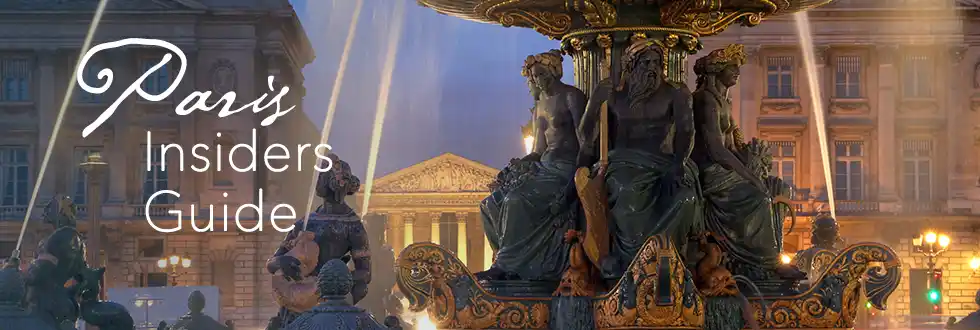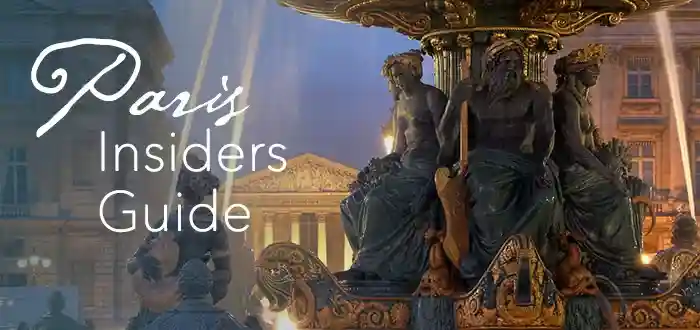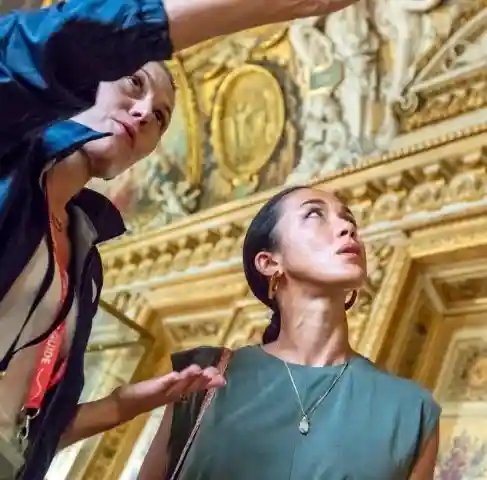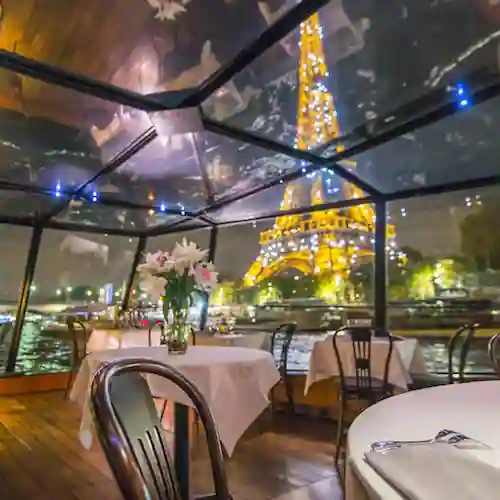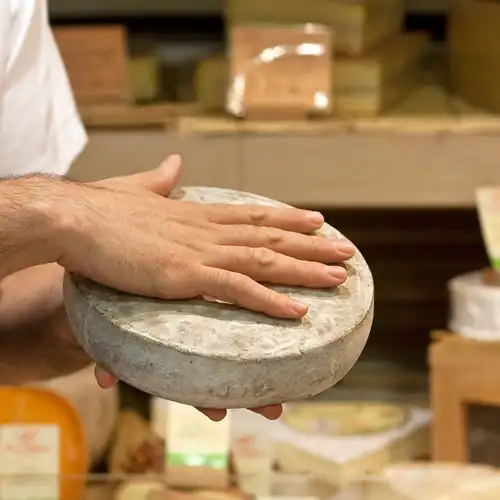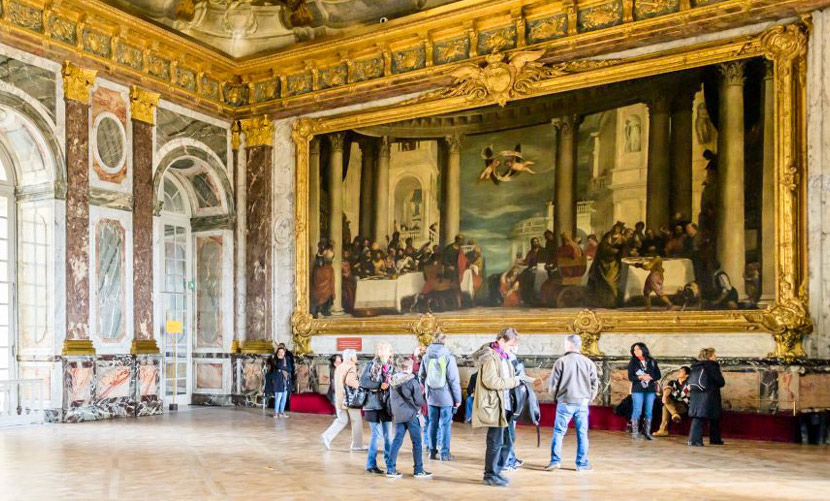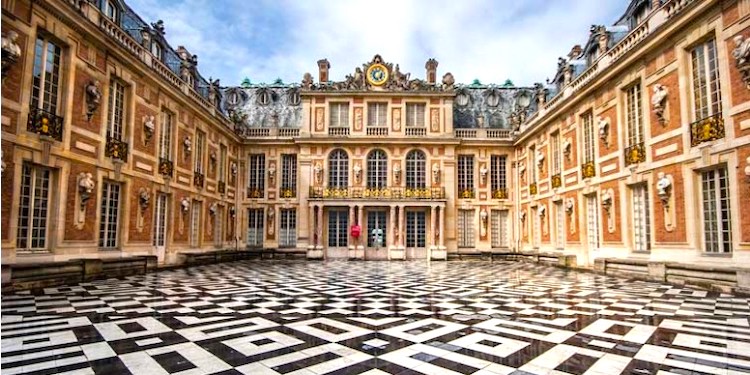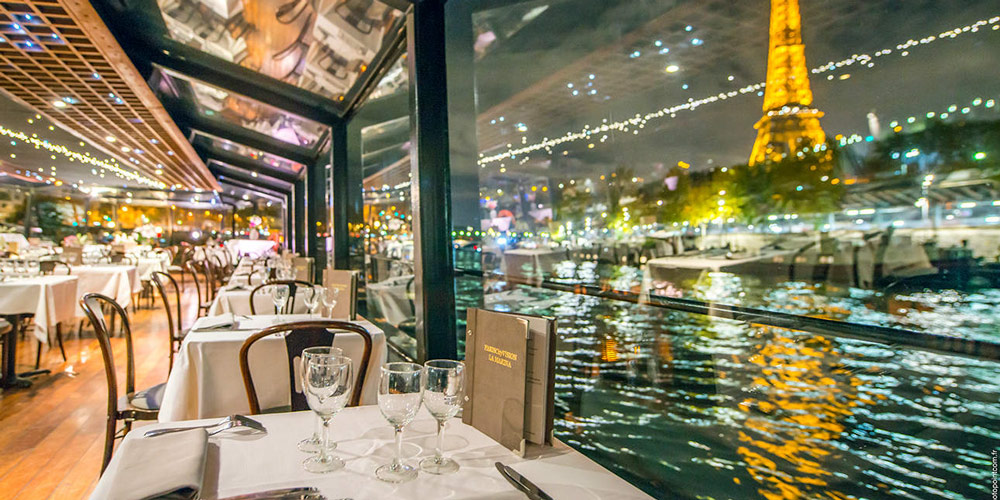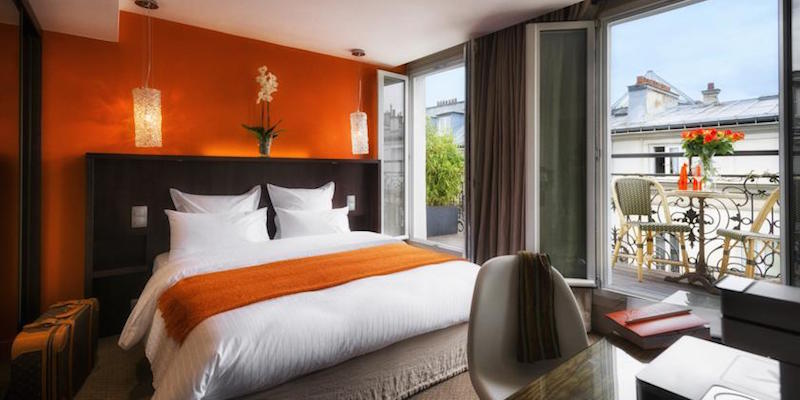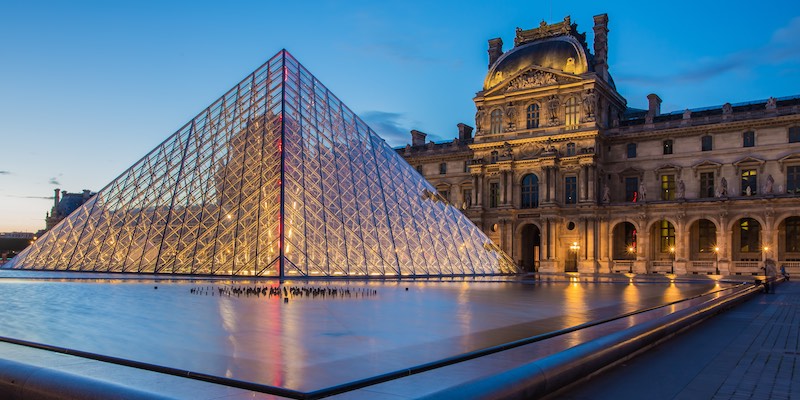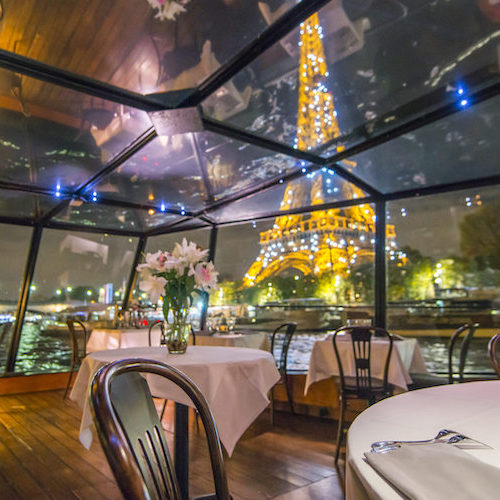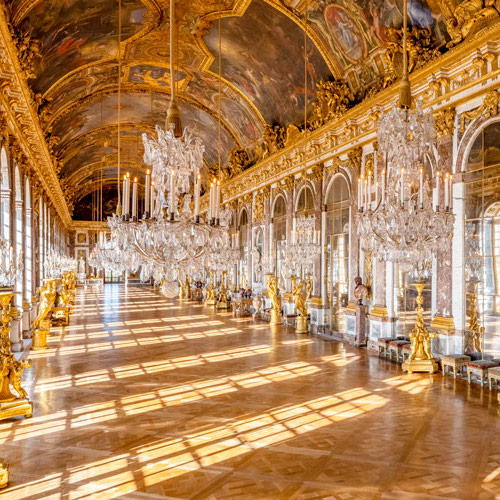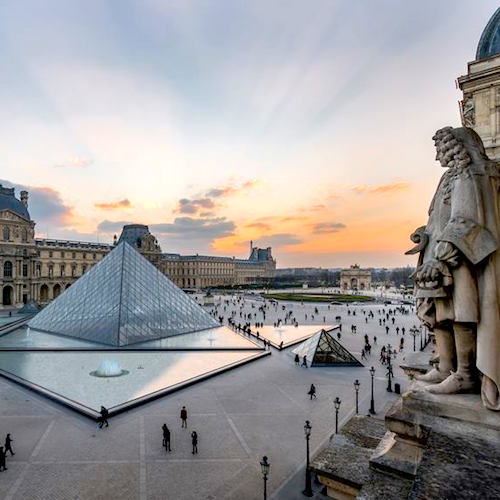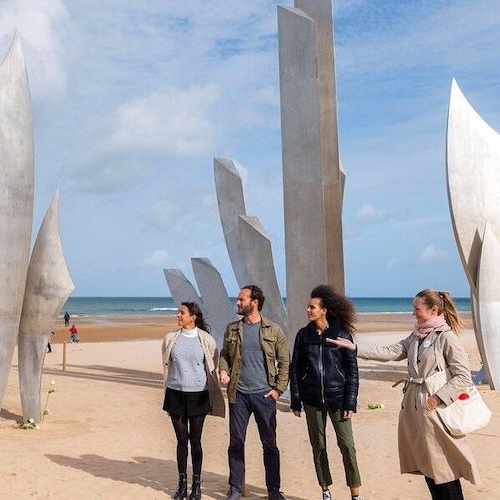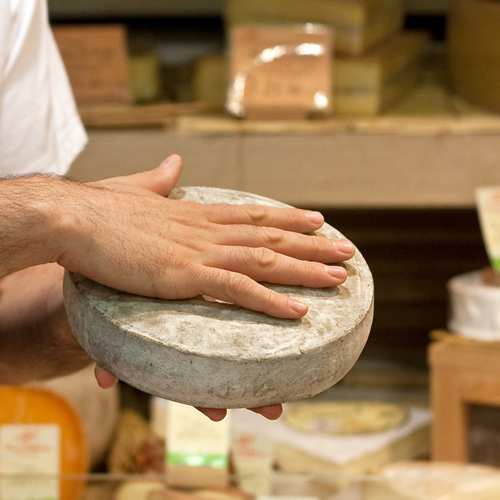Paris Landmarks – Exploring the City's Celebrated Heritage
Paris landmarks fill this historic place, combining deep historical and cultural significance, each one revealing a unique facet of the city's rich story. From monumental palaces to world-renowned cathedrals, the city's landmarks reflect centuries of art, architecture, and ambition.
Learn how to discover and navigate the greatest Paris landmarks with this guide. Here we offer insights into some of the city's most celebrated sites. This is an invitation for you to explore the enduring beauty and fascinating history that make Paris such an enuduring destination.
![]()
Our Top-Rated Paris Experiences
Chateau de Versailles
What started out as a hunting lodge for Louis XIII was expanded by his son, Louis XIV, AKA the Sun King, into a supercalifragilistic chateau and gardens — a symbol of absolute monarchy in France and the height of the arts of the era.
The grand scheme was completed in 1689 and the palace became the royal residence for exactly one hundred years, until the French revolution in 1789 deposed and beheaded Louis XVI and his queen, Marie Antoinette. For a century or so after that the palace and grounds fell into disrepair.
Today, Versailles has been fully restored, offering visitors the chance to explore its hundreds of rooms, grand galleries, and the legendary gardens. To truly appreciate its splendor, we recommend joining a guided tour with priority access and transportation from Paris.
![]()
Discover What's On When You're Here...
• January... |
• February... |
• March... |
• April... |
• May... |
• June... |
• July... |
• August... |
• September... |
• October... |
• November... |
• December... |
Discover What's On When You're Here
• January...
|
• February... |
• March... |
|---|---|---|
• April... |
• May... |
• June... |
• July... |
• August... |
• September... |
• October... |
• November... |
• December... |
Hôtel de la Marine: History on Place de la Concorde
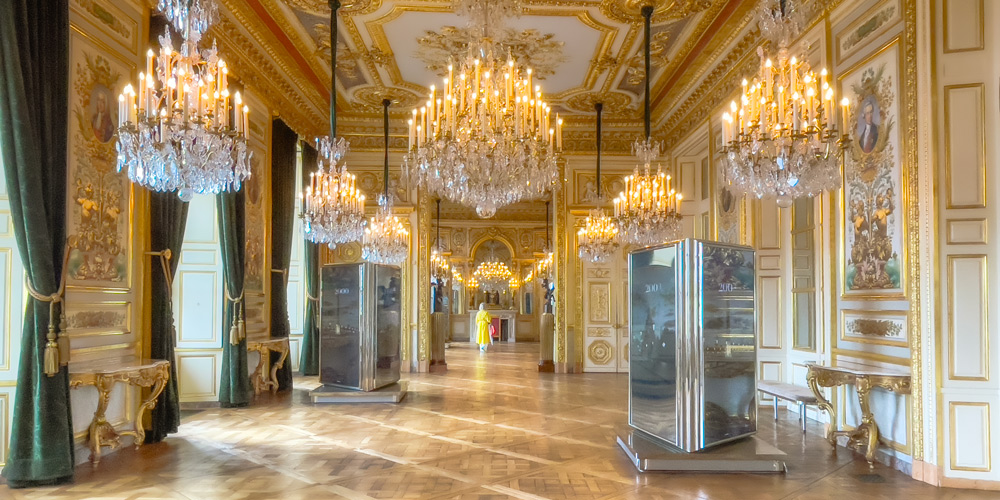 Salon of the Admirals at Hotel de la Marine, photo by Mark Craft
Salon of the Admirals at Hotel de la Marine, photo by Mark Craft
Experience the Hôtel de la Marine on Place de la Concorde that was once home to France's royal treasures and later housed the Navy Ministry. Now beautifully restored, this grand 18th-century building is one of the newest and most spectacular of Paris landmarks.
Don't miss the chance to wander through lavishly decorated salons and galleries, where history and art come together. With stunning views onto the place, and cleverly-designed exhibits, it's Parisian heritage at its finest.
Paris Landmarks – Hotel de Ville
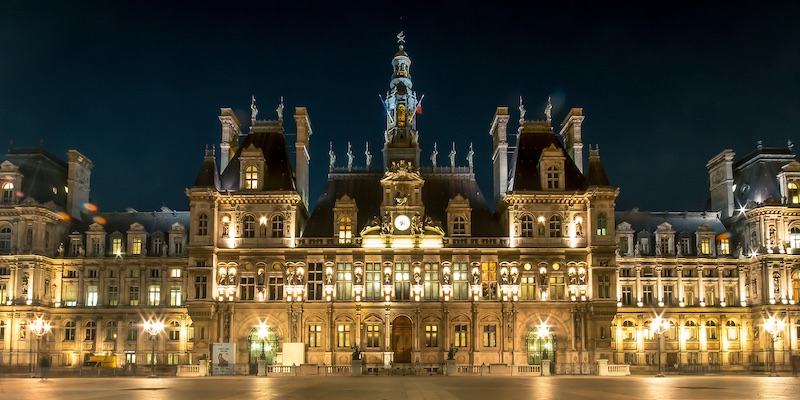 The Paris city hall: Hotel de Ville at night
The Paris city hall: Hotel de Ville at night
Overlooking the Seine, the Hotel de Ville has served as the Paris City Hall for more than six centuries. This historic building has witnessed some of the city's most dramatic events, its high and lows, including its own destruction during the Paris Commune.
Restored to its former glory, the Hotel de Ville stands above the banks of the river — a beautiful reminder of the resilience of France, a fascinating stop for those interested in its past, and one of the Paris landmarks that you should not miss.
![]()
|
Paris Dinner Cruises on the Seine Dine in style as you glide past the Eiffel Tower, Notre-Dame, and the Louvre on a magical Seine River cruise. Gourmet food, champagne, and Paris lit up at night – it’s unforgettable. |
|
Paris Dinner Cruises on the Seine Dine in style as you glide past the Eiffel Tower, Notre-Dame, and the Louvre on a magical Seine River cruise. Gourmet food, champagne, and Paris lit up at night – it’s unforgettable. |
Champs-Élysées Paris – Lights, Drama, Action
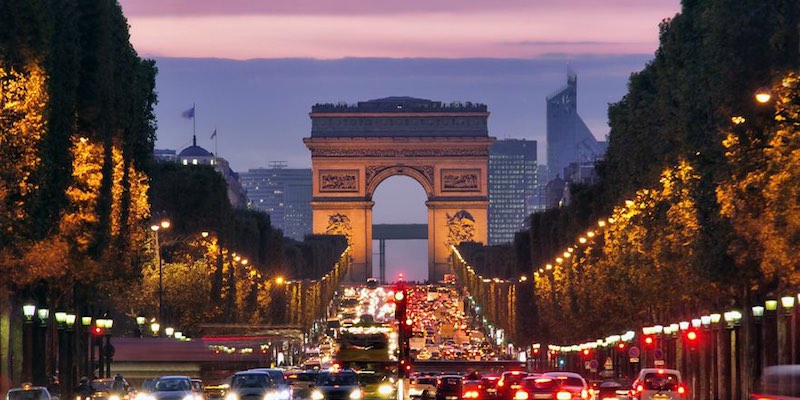 Telephoto shot of a car-filled Champs-Élysées, with the Arc de Triomphe at the end
Telephoto shot of a car-filled Champs-Élysées, with the Arc de Triomphe at the end
Can an avenue be a landmark? Yes, if it's Avenue des Champs-Élysées. A stroll down the avenue comes with luxury stores, impressive architecture, and more people-watching than you thought possible. It's also the site of Paris's biggest parties — from Bastille Day parades to New Year's Eve fireworks. Holiday window displays, garden hideaways, and late-night cafés fill the gaps between the landmarks. It's where the city turns the volume all the way up.
Champ de Mars — Front Row Seat to the Eiffel Tower
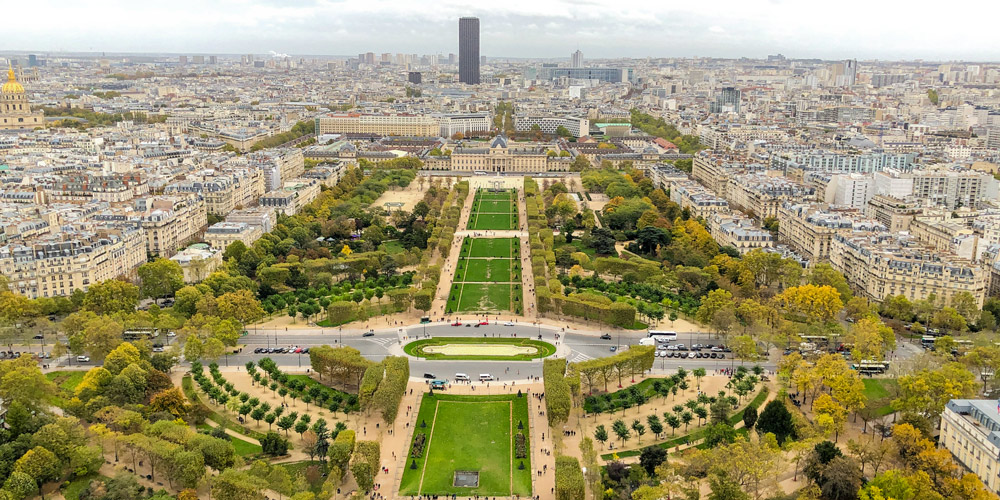 The best view of the Champ de Mars is from the Eiffel Tower, photo by Mark Craft
The best view of the Champ de Mars is from the Eiffel Tower, photo by Mark Craft
Forget fancy rooftop bars — the Champ de Mars in Paris offers the best Eiffel Tower views without the price tag. This historic park has it all: grassy picnic spots, playgrounds for les enfants, and a front-row seat to the most famous light show in Paris. Whether you're here for a noon picnic or an evening under the twinkle of the Iron Lady, this park is pure Parisian perfection.
![]()
Palais Garnier – The Belle Époque Opera House
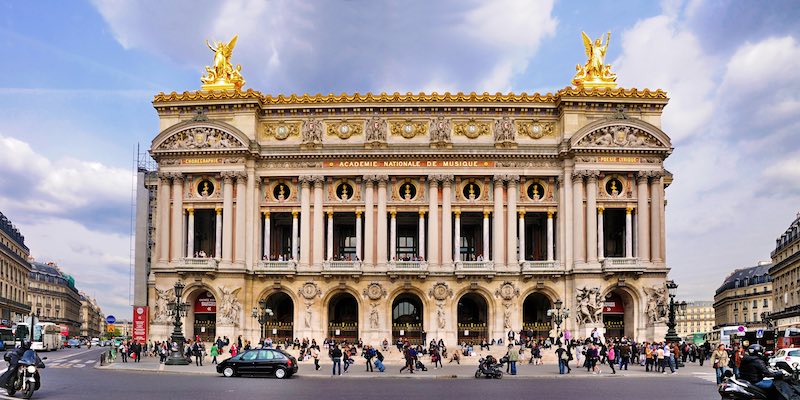 The magnificent facade of Palais Garnier overlooking Place de la Opera
The magnificent facade of Palais Garnier overlooking Place de la Opera
Palais Garnier is a stunning reminder of the Belle Époque and the Paris landmarks it left behind. It was a time of cultural flourishing in the late 19th century where art and beauty came into everyday life.
Situated at Place de l'Opéra, this opulent opera house is known for its lavish interior, with ornate staircases, sculptures, and a grand auditorium graced by a ceiling painted by Chagall. Still in use today, it hosts ballets and select opera performances, offering a portal into the city's artistic legacy.
The Stravinsky Fountain in Paris
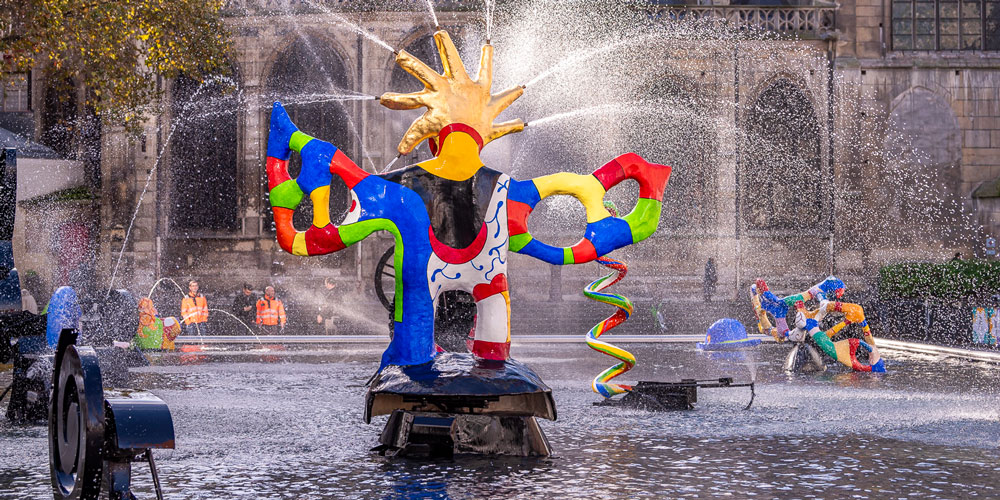 Swirling, brightly colored sculptures of the Stravinsky Fountain, photo Ville de Paris
Swirling, brightly colored sculptures of the Stravinsky Fountain, photo Ville de Paris
Located right next to Centre Pompidou, the Stravinsky Fountain is a celebration of creativity, with colorful sculptures inspired by Igor Stravinsky's compositions. Recent renovations have revived its charm, making it a must-see for anyone into exploring Paris, modern art, music, or fun! Enjoy these 16 whimsical sculptures with a playful blend of water, motion, and sound in the heart of the city's cultural scene.
Monnaie de Paris: History & Craftsmanship
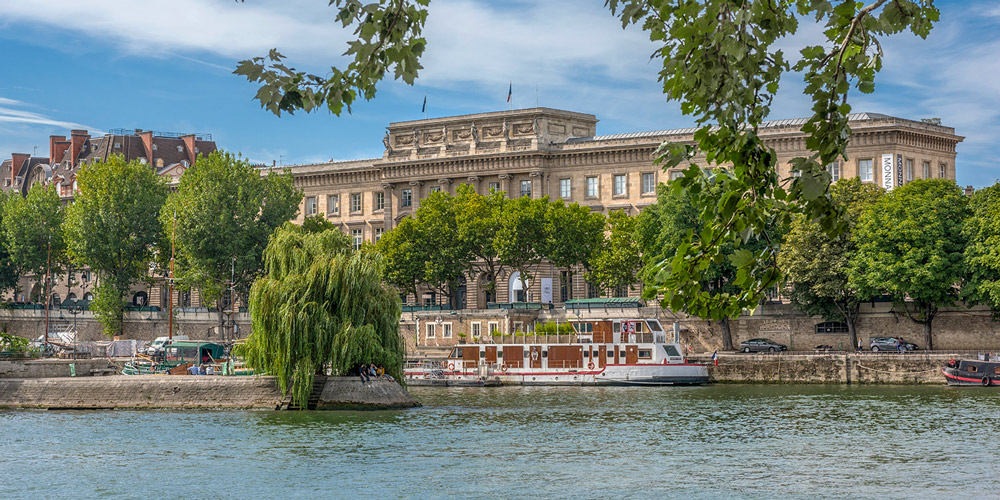 Monnaie de Paris on the Seine, photo Monnaie de Paris by Bernard Touillon
Monnaie de Paris on the Seine, photo Monnaie de Paris by Bernard Touillon
Coins, craftsmanship, and centuries of history — Monnaie de Paris has it all. This grand neoclassical palace on the Seine is the world's oldest mint, producing coins since 864. Visit the museum, watch artisans at work, and explore contemporary art exhibitions, all within one of Paris' most beautiful buildings. And if you're feeling flush, dine at Guy Savoy's Michelin-starred restaurant for a meal as refined as the setting.
Secrets Of The Notre Dame Towers
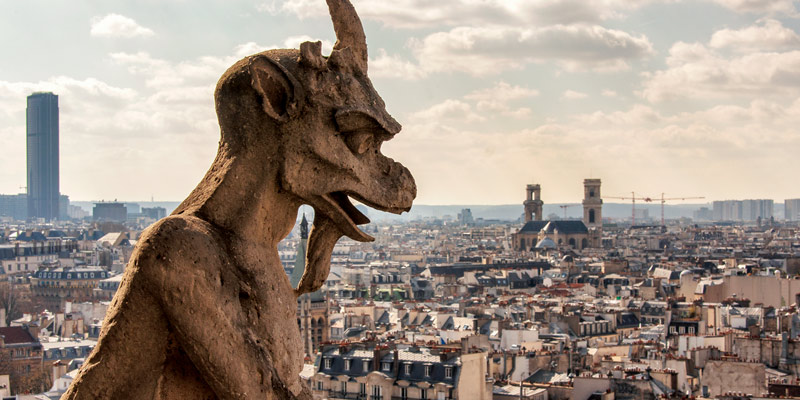 Paris, as seen from the Notre Dame towers, photo by Mark Craft
Paris, as seen from the Notre Dame towers, photo by Mark Craft
The bell towers of the famous Paris landmark destination Notre Dame Cathedral are what inspired Victor Hugo to pen his famous novel, The Hunchback of Notre Dame, featuring Quasimodo, the bell-ringer with a heart of gold. These iconic bell towers have inspired countless visitors with their historic architecture and views of the Île de la Cité.
Notre-Dame has re-opened after the near fatal fire of April 2019. Stay updated on when you'll be able to once again climb its 387 steps for a timeless view over Paris. (Some time in 2025.) Meanwhile, to visit the church itself it is now recommended to book a reserved time slot.
![]()
|
Browse our hand-picked Paris hotel deals with real-time discounts of up to 20%. Stay in the Marais, Saint Germain, the Latin Quarter, the Left Bank near the Eiffel Tower… every arrondissement is on the list. |
|
Browse our hand-picked Paris hotel deals with real-time discounts of up to 20%. Stay in the Marais, Saint Germain, the Latin Quarter, the Left Bank near the Eiffel Tower… every arrondissement is on the list. |
Paris Landmarks: Opera Bastille
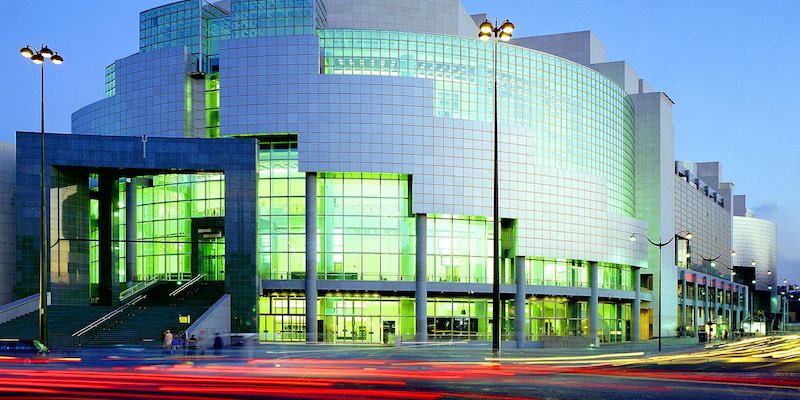 The modernistic and stylish Opera Bastille
The modernistic and stylish Opera Bastille
As Paris expanded and opera grew ever more ambitious and prestigious, French President François Mitterrand championed the creation of a modern opera house to complement the classic Palais Garnier. Opened in 1989 to mark the bicentennial of the French Revolution, Opera Bastille now hosts grand operas, showcasing some of France's finest productions in a sleek, contemporary setting that reflects the city's forward-looking spirit.
The Conciergerie
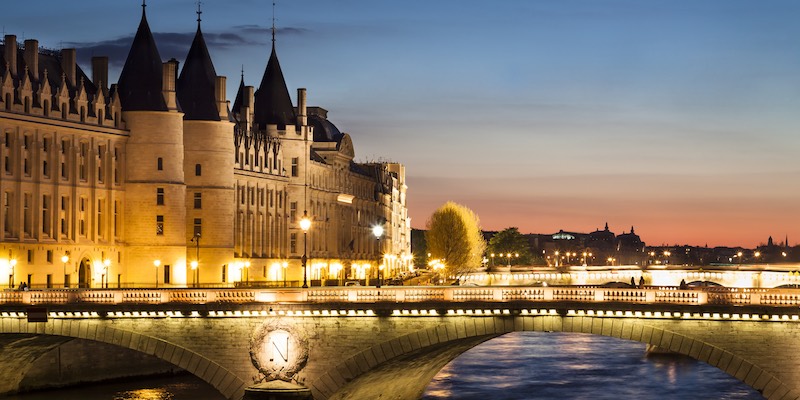 La Conciergerie at night, with the river Seine in the foreground
La Conciergerie at night, with the river Seine in the foreground
The building known as La Conciergerie started life innocently enough as the residence of the Concierge, who was the keeper of the royal palace that was once located on Île de la Cité. By the 14th century the royal residence had moved across the river to the Louvre and the Conciergerie had become a notorious prison.
Its worst period of infamy was during the French Revolution when hundreds were imprisoned, tried and guillotined there — including Marie Antoinette. Today, visitors can explore this historic building and learn about its varied roles through French history.
Palais Royal – Paris Landmarks
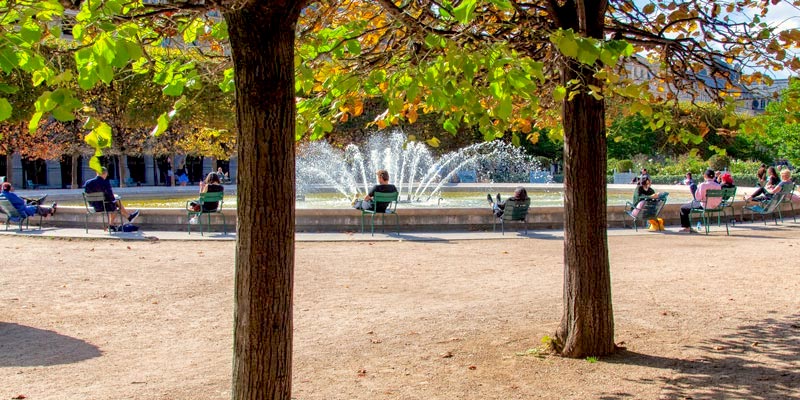 Gardens and fountain of Palais Royal, photo by Mark Craft
Gardens and fountain of Palais Royal, photo by Mark Craft
In the historic center of Paris, the Palais Royal is often missed by visitors. But it has one of the best hidden gardens in the heart of the city and an amazing history. Today at Palais Royal you also will find art installations, boutique shopping, and two Michelin-starred restaurants.
![]()
|
Skip the long lines and dive into the Louvre’s greatest hits — the Mona Lisa, Venus de Milo, and more — on a guided tour that shows you the treasures without the museum overload. |
|
Skip the long lines and dive into the Louvre’s greatest hits — the Mona Lisa, Venus de Milo, and more — on a guided tour that shows you the treasures without the museum overload. |
Les Invalides & The Tomb of Napoleon
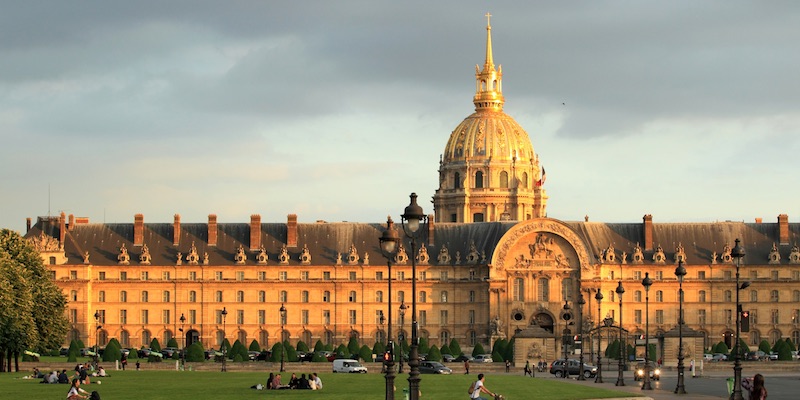 Les Invalides. The tomb of Napoleon is beneath the dome.
Les Invalides. The tomb of Napoleon is beneath the dome.
Founded by Louis XIV in 1670 as a residence for war veterans, Les Invalides now serves as a remarkable center of French military history. Its grand golden dome houses the tomb of Napoleon Bonaparte, and the site offers a deep look into the legacy of France's military achievements. Located in the 7th Arrondissement, Les Invalides is a must-visit for history enthusiasts.
Why Visit Place de la Madeleine?
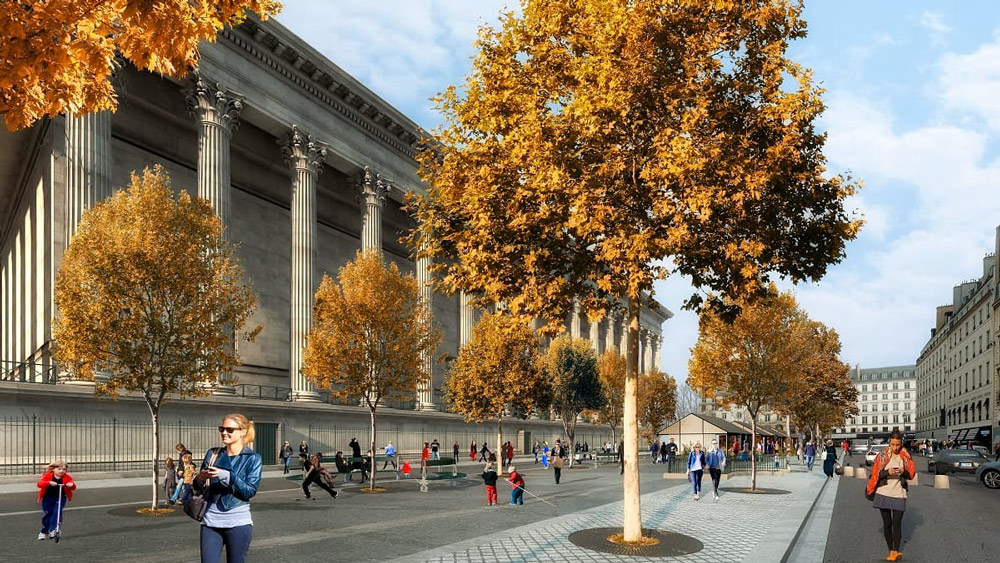 Artist's conception of the 21st-century renovation at Place de la Madeleine
Artist's conception of the 21st-century renovation at Place de la Madeleine
Looking for a Paris landmark that serves both grand architecture and gourmet mustard? Place de la Madeleine hits the sweet (and spicy) spot. It's where a Roman-style church meets truffle boutiques, wine emporiums, and one of the city's fanciest public toilets.
With recent restorations and a growing cafe scene, this square has shed its traffic-clogged past and emerged as one of the more surprising pleasures in the 8th Arrondissement. Stop by for the columns — stay for the condiments.
The Grand Mosque of Paris
Peaceful Paris with Mint Tea on the Side
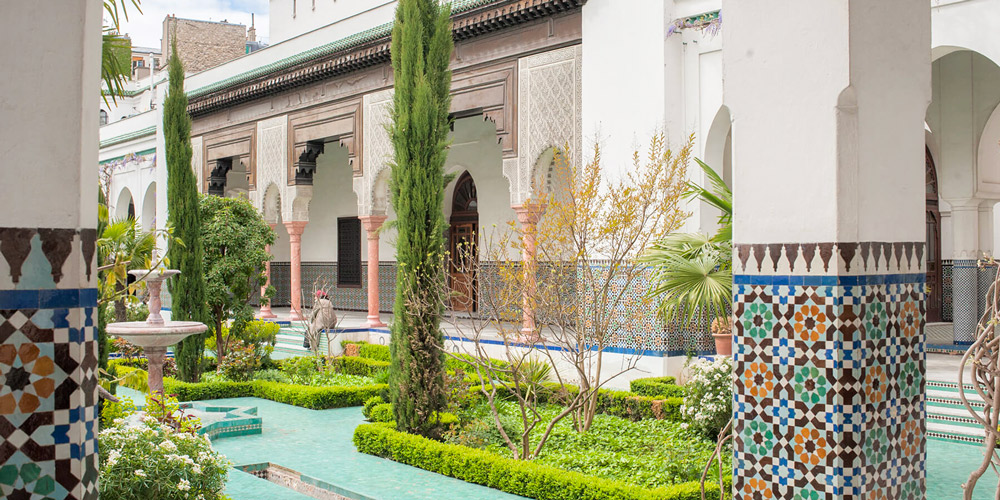 The serenity of the gardens of the Grand Mosque, photo Islamicity
The serenity of the gardens of the Grand Mosque, photo Islamicity
Tired of crowds and crepes? The Grand Mosque of Paris delivers a different kind of Paris experience. Think tiled courtyards, Moroccan pastries, and a spa day with historic flair.
Between the beauty, the backstory, and the bowls of couscous, this Paris mosque in the 5th Arrondissement offers travelers something quietly memorable. Make time for it. Then take your tea outside and let Paris swirl on without you for a little while.
Chateau de Vincennes Paris
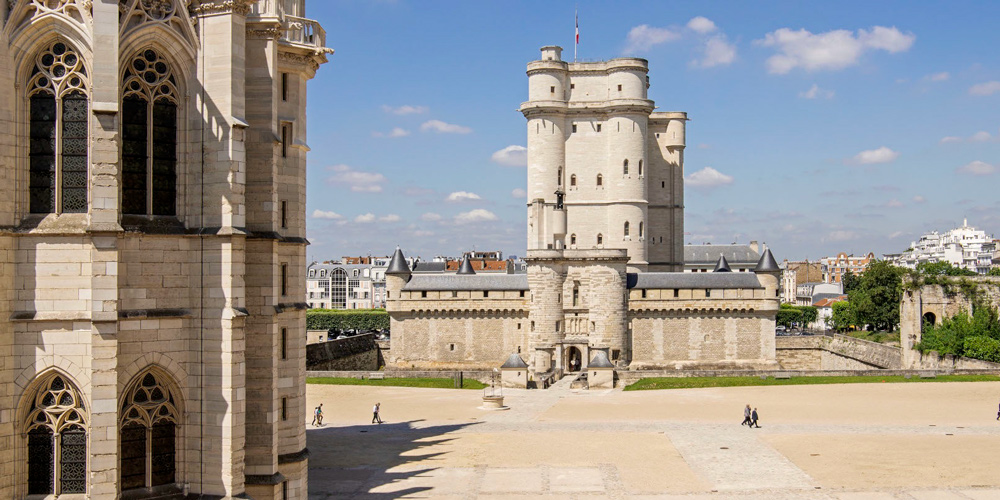 A wide view of the Chateau de Vincennes with La Sainte Chapelle, photo Chateau de Vincennes
A wide view of the Chateau de Vincennes with La Sainte Chapelle, photo Chateau de Vincennes
Step into history at Chateau de Vincennes in eastern Paris, a fortress where kings ruled and history was made. Explore its towering keep, its Gothic chapel, and its formidable walls. With its storied past and stunning architecture, it's a destination that offers both learning and leisure. Located just outside central Paris, it's perfect for a half-day getaway and simple to get to using the Metro or RER.
A Medieval Mansion in Paris: Hôtel de Sens
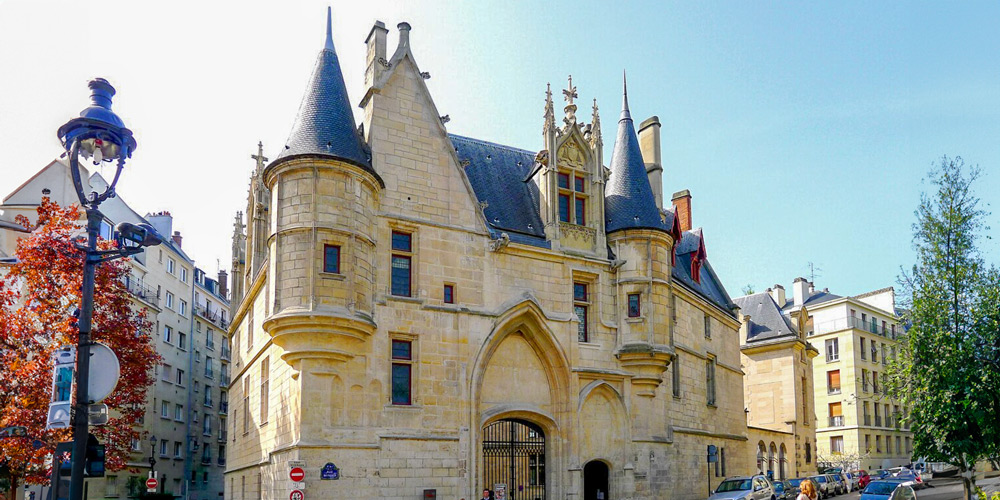 The medieval facade of Hôtel de Sens, photo Wikimedia by Mbzt
The medieval facade of Hôtel de Sens, photo Wikimedia by Mbzt
Hôtel de Sens is a real 15th-century castle, complete with turrets and a formal French garden, transports you back in time. Built between 1475 and 1519 as a residence for the Archbishop of Sens, the mansion later housed Queen Margot after her marriage to King Henry IV ended.
This historic medieval castle is home to Bibliothèque Forney, a public art library with a remarkable collection of posters, textiles, and design books. Open to visitors, and one of the least-known Paris landmarks, it's a must-see for art enthusiasts and history lovers exploring the Marais.
Art, Steel & Scandal Under Glass
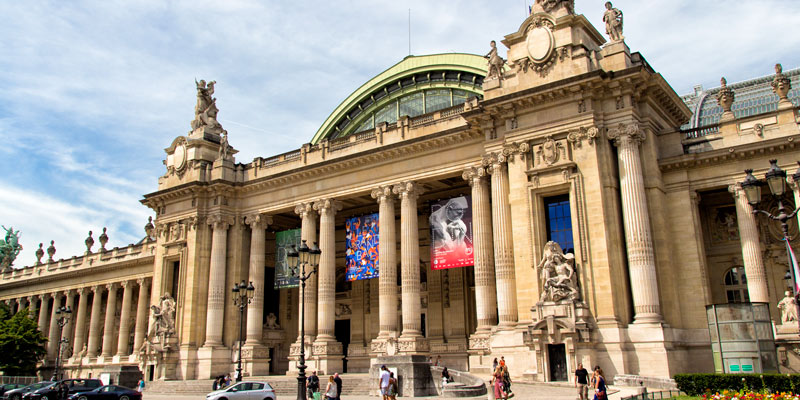 The grand entrance to the Grand Palais, photo by Mark Craft
The grand entrance to the Grand Palais, photo by Mark Craft
The Grand Palais Paris isn't just another landmark — it's a full-blown cultural drama. Here's a space where Fauvism caused a scandal in 1905, Nazis parked their trucks in WWII, and Karl Lagerfeld staged entire runways under a glass dome.
With its 2025 reopening, it's once again hosting top-tier art exhibitions, musical events, Fashion Week flair, and even holiday season ice skating. If you want a monument that can pivot from mind-blowing art to Hip Hop without breaking a sweat, this is the place.
![]()
|
Escape to the Land of Bubbly on a small-group day tour from Paris. Taste at top Champagne houses, meet boutique producers, enjoy a leisurely lunch, and toast to a perfectly sparkling day. |
|
Escape to the Land of Bubbly on a small-group day tour from Paris. Taste at top Champagne houses, meet boutique producers, enjoy a leisurely lunch, and toast to a perfectly sparkling day. |
Pont des Arts – The Paris Bridge With a View
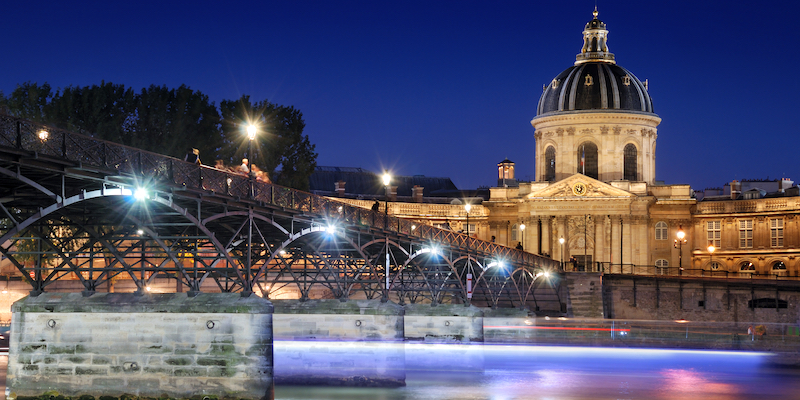 Pont des Art at night, with the Institut de France
Pont des Art at night, with the Institut de France
A pedestrian bridge with an attitude, Pont des Arts connects two Paris heavyweights — the Louvre and the Institut de France — with nothing but open sky, quiet foot traffic, and some of the best river views in the city. It's been rebuilt, restored, and rid of its love-lock problem, but the charm hasn't budged an inch
Want the full story of the bridge that connects the Louvre to the Académie Française and somehow manages to be cooler than both? Head over to our in-depth page where we walk through 200 years of charm, damage, repair, and unrepentant Parisian flair.
Vaux-le-Vicomte
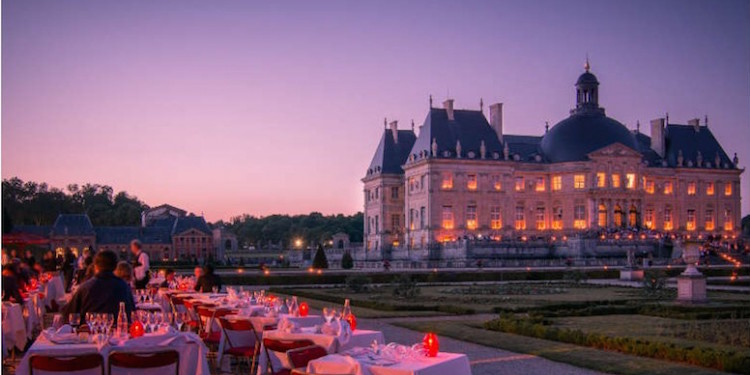 Vaux-le-Vicomte, set for dinner service, photo Vaux-le-Vicomte
Vaux-le-Vicomte, set for dinner service, photo Vaux-le-Vicomte
An hour from Paris, Vaux-le-Vicomte was the inspiration for the grandeur of Versailles. The chateau's enchanting architecture and expansive gardens offer a memorable escape into French history. A visit here feels like stepping back in time, particularly during evening candlelit tours, when the estate truly comes to life. This chateau is a perfect day trip for those wanting a taste of royal elegance beyond Paris.
The Many Chapters of Paris Landmarks
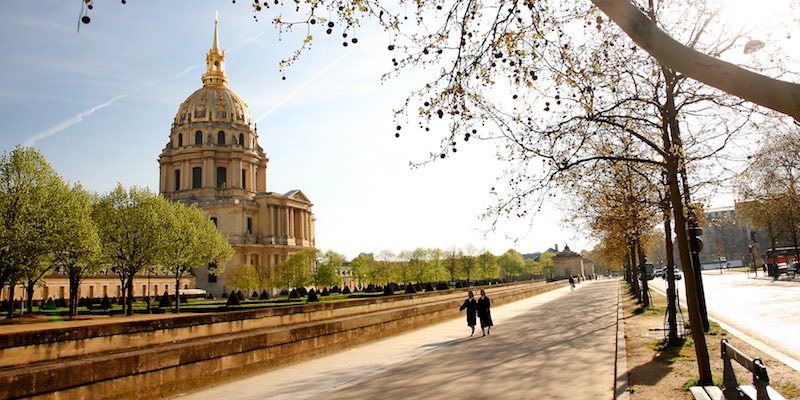 The golden dome of the Tomb of Napoleon at Les Invalides
The golden dome of the Tomb of Napoleon at Les Invalides
Exploring Paris landmarks is like unfolding the pages of a rich historical novel. Each site offers a chapter of the city's story, from the magnificence of Versailles to the quiet escape of Palais Royal. Landmarks like these bring Paris to life in ways that create a lasting memory, helping you to connect with the art, culture, and history that make the City of Light truly unforgettable.
![]()
|
Paris Dinner Cruises on the Seine Dine in style as you glide past the Eiffel Tower, Notre-Dame, and the Louvre on a magical Seine River cruise. Gourmet food, champagne, and Paris lit up at night – it’s unforgettable. |
|
Paris Dinner Cruises on the Seine Dine in style as you glide past the Eiffel Tower, Notre-Dame, and the Louvre on a magical Seine River cruise. Gourmet food, champagne, and Paris lit up at night – it’s unforgettable. |
